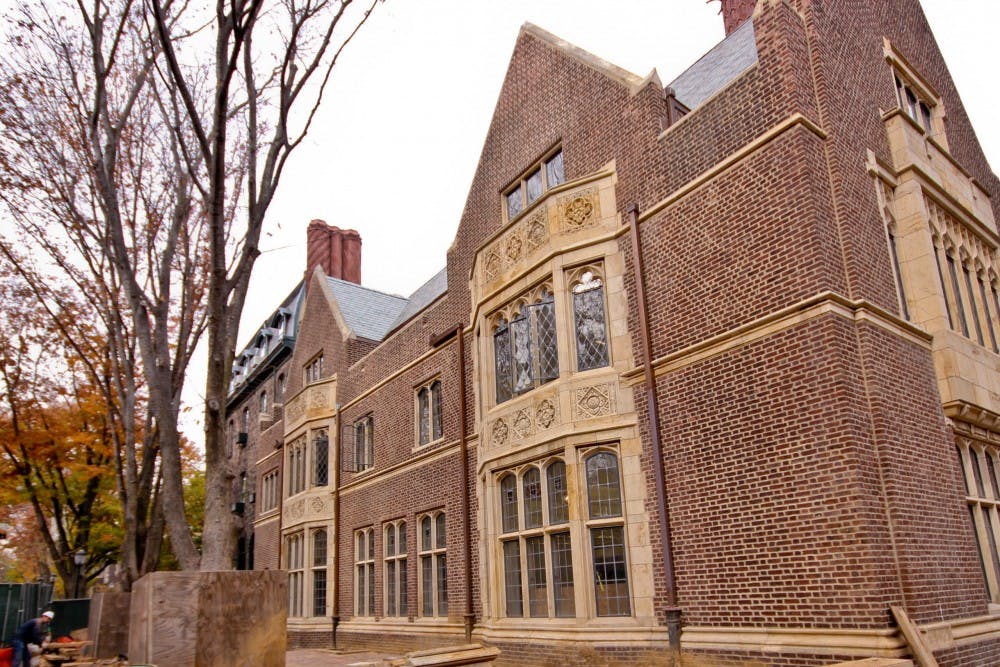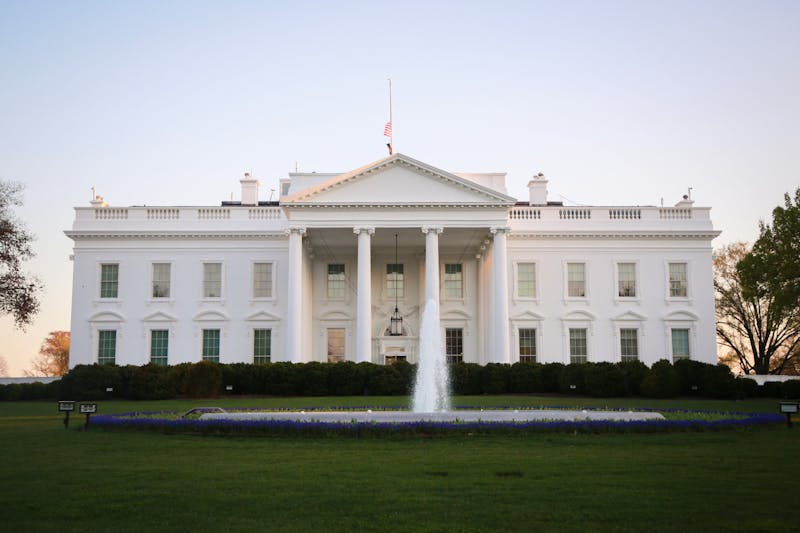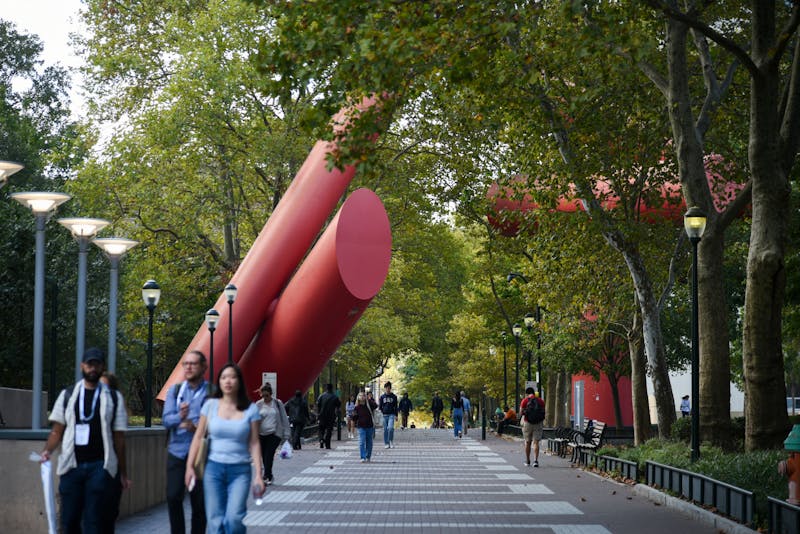
This semester the 5B, the umbrella groups which house different minority groups on campus, elected a new executive board. The Daily Pennsylvanian spoke with the chairs of each organization to see what’s in store for this semester.
Chair of Asian PacificStudent Coalition: Wharton junior Yen-Yen Gao
Daily Pennsylvanian: What are three things you want to work on this semester?
YG: Something I want to work on is making our community more inclusive and open. We want to make it so that anyone who wants to be a part of APSC can be a part of it without feeling like they can’t be in it if they don’t identify as Asian. We want to make our cultural house more open to anyone, our APSC general body meetings more open to people and making sure our constituent groups do so as well. We want to bridge the gap between different ethnicities as well as domestic and international students. Externally, with the 5B, we want to work on how we work with each other to present things to the administration and how we can come up with a united agenda.
DP: What do you want the APSC to be known for in the Penn community?
YG: I want the APSC to be known as the organization that ties together so many different groups and as the foundation of the API community. I want APSC to be the foundation that’s serving the community and helping our constituent groups accomplish what they want to accomplish and showing the Penn community, through our constituent groups, how diverse and active the API community is.
DP: If you could describe you goal/mission for this semester in a few words, what would they be and why?
YG: Unity through diversity because we have to accept that throughout our community and among the 5B we are all very diverse and you can’t fit everyone into the same mold. You really have to respect the diversity within every community and make that a positive attribute and incorporate that into everything we do. We always learn more when everyone’s voice is heard.
Chair of the Lambda Alliance: College junior Sean Collins
DP: What are three things you want to work on this semester?
SC: One major thing is getting more resources out to queer students. One of the things that we’re working on is an LGBTQ+/queer resource guide so they can be given to RAs or just be on the LGBT center website as one big PDF with a paragraph about all the big resources on campus so students can utilize those even if they’re afraid to reach out to someone in the community. A second thing is responding to adversity. We had preachers and all of that. And when those things occur we want to have queer spaces that people can go to and respond in the way that they feel appropriate for themselves and to show that Penn is not a community like that. Third thing is I really want to help our constituent groups collaborate across campus and work with groups we don’t normally associate with.
DP: What do you want the Lambda Alliance to be known for in the Penn community?
SC: We want to be known an advocacy group that is aiming for acceptance within all of the other movements happening. One of the roles Lambda has, in addition to creating its own political movements, is helping other groups on campus make their initiatives more accepting. So if we see something that might be problematic on their posters, we can go and train them on things like how gay men experiences sexual assault or trans women of color.
DP: If you could describe you goal/mission for this semester in a few words, what would they be and why?
SC: Have people feel comfortable, because with all of the crazy things that happened at Penn, if queer students and all students feel comfortable being at Penn, that makes their time at Penn more comfortable. If you’re not feeling safe here at Penn you’re not going to want to engage in extracurriculars or academics. It’s just not a pleasant experience.
Chair of Latin@ Coalition: College sophomore Caleb Diaz
(Caleb’s co-chair, Brailinson Disla, was abroad during the time of the interview and not available to be interviewed for this piece.)
DP: What are three things you want to work on this semester?
CD: The first thing is to increase collaboration between the 5Bs, and in the past there hasn’t really been any collaboration so that’s a big goal for us. In terms of the LC, we want to work on the relationship between the administration, especially in terms of getting funding, because I think we aren’t getting as much funding as we deserve. We also want to increase collaboration between all the constituent groups. We feel that some groups are a little bit more exclusive when they shouldn’t be. Every group should be interacting with each other and having events.
DP: What do you want the Latin@ Coalition to be known for in the Penn community?
CD: We want the LC to be known as a representative voice. We want everyone’s voice to be heard and to be the bridge between the Latinx’s on campus and the administration.
DP: If you could describe your goal/mission for this semester in a few words, what would they be and why?
CD: Increase collaboration, because it’s so important we collaborate because you can’t get things done if you’re one person. And we’re all Latinx’s and we want to celebrate culture, but what better way to do that than involve everyone.
Chair of United Minorities Council: College junior Krisna Maddy
DP: What are three things you want to work on this semester?
KM: One is increasing UMC’s involvement in the community because I think that we’re in a special position because we represent all minorities on campus. We’re in this awkward place where we don’t want to step on anyone’s toes, so I think a good place to start is to not only represent minorities on campus but get involved in the community. The other thing is to increase our political voice on campus and our political presence because in the past we’ve been more socially oriented, having events that bring different groups together. The third thing is community building within the minorities, so trying to breakdown the divide between different minority groups on campus. In the basement of ARCH, we have La Casa, PAACH and Makuu, and it’s like we’re together but we’re not really together.
DP: What do you want the United Minorities Council to be known for in the Penn community?
KM: For representing organizations that don’t have a clear voice. For example, UMC has a lot of groups that don’t belong to any other umbrella group like Penn for Immigrant Rights, and they’re an organization that wouldn’t necessarily be under Lambda or UMOJA. I want UMC to be the go-to place for groups that feel like don’t have another group to be a part of, and hopefully we can be a home for them.
DP: If you could describe you goal/mission for this semester in a few words, what would they be and why?
KM: Political activism and promoting interculturalism. Because we want to increase our political awareness and promoting interculturalism is the basis by which UMC does what it does.
Co-chairs of UMOJA: College sophomore Calvary Rogers and Wharton junior Briana Johnson
DP: What are three things you want to work on this semester?
BJ: At the top of our list collectively is making sure that physical health and mental health-related resources are available to black students on campus. Obviously Penn has SHS and CAPS, but I want to make sure that we’re encouraged to take care of ourselves by the University, especially when traumatic events are happening and we feel like we’re under this Ivy League pressure and we have to push that part of ourselves aside.
CR: One big thing is tapping into our history. A lot of times we do demands and protests but we never look at what did students in the past do at Penn. What were demands 30 years ago, because it’s basically the same administration? If tap into our history we can definitely be more effective moving forward. Sexual assault and education is really a big thing for me. It’s not an issue specific to the black community, but it’s definitely important.
DP: What do you want UMOJA to be known for in the Penn community?
BJ: I think something we started last semester was building this sense of a) trust with the constituents, b) trust with the administration and this sense of effective urgency. We want to make sure that everyone — staff, faculty, students, organizations — on this campus know that we are as much of a resource on this campus as they are and we are in a position to affect change and hopefully they’ll see progress on the three initiatives we said before.
CR: For me, it’s definitely transparency between the administration because I think the administration sometimes doesn’t have a link to students and what they want. I also want there to be transparency from students to the administration because sometimes students don’t know exactly how UMOJA and the administration work together. It makes the community as a whole feel safe.
DP: If you could describe you goal/mission for this semester in a few words, what would they be and why?
CR: Empowerment, safety, transparency. Empowerment because every black student on campus needs to feel empowered. I know after the GroupMe incident, I was more black than I was a student, and those should never be two separate things. I’m a black student.
BJ: I just think that we need to understand we are entitled to that empowerment. It’s not something that somebody should make us feel empowered. When you wake up in the morning you should feel empowered.
CR: Every black student needs to feel safe on campus. We all know what’s it like to not feel safe on campus and you’re not a student anymore. You’re just black, on a campus, sitting in a class you can’t focus on. We came here to be students. If not, I could have just stayed home.
BJ: Regardless of the disproportionate financial aid status among black students here on campus, we pay something to be here. We don’t pay to be harassed. We don’t pay to feel endangered. I am not going to pay you money to make me feel unsafe or give me anxiety.
These interviews have been lightly edited for length and clarity.
The Daily Pennsylvanian is an independent, student-run newspaper. Please consider making a donation to support the coverage that shapes the University. Your generosity ensures a future of strong journalism at Penn.
Donate






